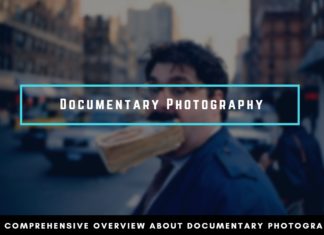Being added to the SDN Blocked Persons List — managed by the U.S. Treasury’s Office of Foreign Assets Control (OFAC) — can instantly cut an individual or entity off from the global financial system. It’s one of the most serious consequences in international economic enforcement, leading to asset freezes, business blacklisting, and reputational harm. However, there are legal paths to removal, and with the right support from experienced sanctions lawyers, it is possible to recover.
What Is the SDN Blocked Persons List and How Does It Work?
The SDN (Specially Designated Nationals) Blocked Persons List is a public list maintained by OFAC. It includes individuals, companies, organizations, and even vessels that the U.S. government deems to be acting against national security or foreign policy interests.
Once listed, all U.S. persons and entities are prohibited from engaging in any business with the SDN-designated party. Moreover, any assets under U.S. jurisdiction are frozen, and financial institutions globally often follow suit to avoid secondary sanctions or reputational damage.
The list is updated regularly and covers a wide range of sanctions programs, from counter-terrorism and narcotics trafficking to human rights abuses and cybercrime. Being listed doesn’t require a criminal conviction — it is an administrative action based on evidence collected by the U.S. government.
Who Can Be Added to the SDN List and What Are the Consequences?
Anyone — from foreign government officials and business owners to entire corporations — can be designated if they are deemed to be involved in activities contrary to U.S. policy. This includes:
- Financing terrorism or criminal networks;
- Conducting transactions with embargoed regimes (e.g., North Korea, Iran);
- Involvement in human rights violations;
- Cybersecurity threats or election interference;
- Money laundering or major corruption cases.
Once included on the list, the effects are immediate and global. Banks close accounts, business partners pull out, and travel or immigration status may be affected. In many cases, even non-U.S. entities begin to treat SDNs as toxic to avoid being penalized themselves.
The listing also becomes a public relations disaster, often reported in media and indexed in search engines, severely impacting personal and corporate reputations.
Legal Measures to Get Removed from the SDN Blocked Persons List
Despite its severity, SDN designation is not necessarily permanent. Individuals and businesses can petition OFAC for removal through a process known as delisting.
To do this effectively, a detailed legal submission must be prepared. This includes:
- A formal written request for removal;
- Evidence demonstrating a change in behavior or status (e.g., severing ties with sanctioned entities);
- Arguments showing mistaken identity or outdated information;
- Proof of compliance with U.S. and international regulations.
The review process can take months and often involves back-and-forth communication with OFAC analysts. While complex, many individuals and entities have successfully cleared their names by presenting strong, verifiable documentation and legal arguments.
In some cases, if OFAC rejects the petition, further action can be taken in U.S. federal court — though litigation is rare and requires a carefully crafted legal strategy.
How a Lawyer Can Help with Sanctions Removal and Reputation Recovery
The SDN delisting process is not something you should navigate alone. Working with an experienced sanctions lawyer greatly increases your chances of success.
A qualified attorney can:
- Analyze the specific legal basis for your listing;
- Develop a tailored strategy for delisting;
- Communicate directly with OFAC on your behalf;
- Help build a strong compliance and mitigation narrative;
- Advise on reputation management and public communications.
Moreover, a lawyer ensures that all documentation meets OFAC’s strict procedural requirements and avoids the common pitfalls that can lead to delays or rejection.
After removal, legal counsel can also help restore damaged relationships with banks, partners, and regulators. This might include formal legal statements, regulatory notifications, or compliance upgrades to demonstrate your renewed good standing.





















